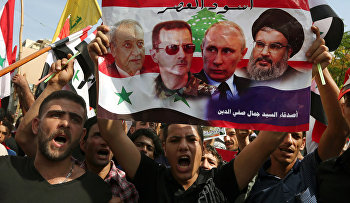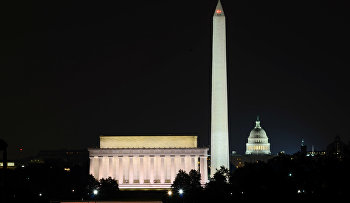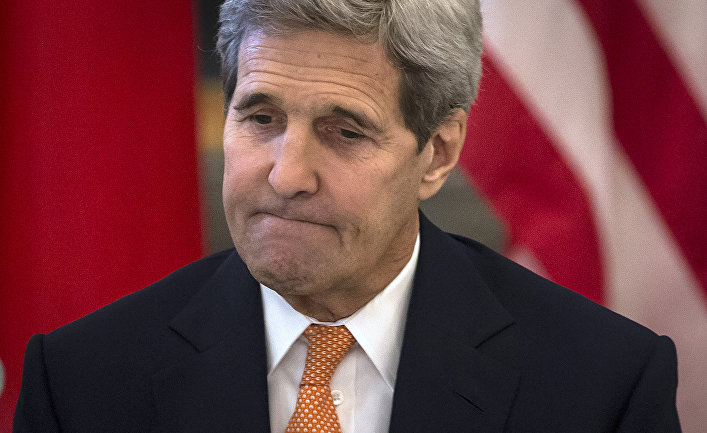The four-party Syrian Support Group, Russia, the US, Turkey and Saudi Arabia, is scheduled to expand. The meeting of the Quartet's foreign ministers in Vienna last week served as a launchpad for the formation of an expanded peace process support group, to bring in Egypt, the Persian Gulf states, the Arab League and the Organization for Islamic Cooperation, in addition to Iran. A broadened coalition of allies could be formed through constant contact with Washington and Moscow that might find common ground on Syria for the first time in a long while. Kommersant's sources say such a coalition is close to agreement on which opposition groups among the militarized opposition are considered “moderate” — and which are rated “radical.” The fact that the so-called “Free Syrian Army,” propped up by the US, Saudi Arabia and Turkey, has given the green light to dialogue with Moscow gives our interviewed experts cause to see “real progress in forming a contact group.”
After the Vienna meeting, which featured Turkish and Saudi involvement, the foreign ministry leaders of both Russia and the US, Sergey Lavrov and John Kerry exchanged views twice by phone. These calls, as Russian Foreign Ministry sources said, “continued discussion of the prospects for a political settlement in Syria that would involve both the government side and the patriotic opposition, supported by the international community with leading states of the region.”

Prior to this, Lavrov had put forward an initiative aimed at setting up an “effective group of support representatives” for the peace process, which Russia envisages as including “all the key states of the region — Jordan, Egypt, the United Arab Emirates, Turkey, Qatar and Iran. Implementation of the initiatives would become the responsibility, in addition to the UN Security Council permanent members, of the League of Arab States, the Organization for Islamic Cooperation, and the European Union. Altogether Moscow's vision of the group for solving the Syrian crisis would comprise “around a dozen countries, who should operate similarly to the Sextet (the five permanent UN Security Council members plus Germany) which previously “had such great success on the issue of the Iranian nuclear program.”
#Lavrov invites other countries to join Russia-Jordan coordination on resolving #SyriaCrisis https://t.co/E2Rh5Op87S
— Sputnik (@SputnikInt) October 23, 2015
Mentioning their “common interest in making contacts more regular and productive,” Quartet representatives slated their next meeting for 30 October. It's quite possible that by then the line-up of the group would already by expanded, as suggested by John Kerry on the basis of the Vienna meeting. Yesterday Saudi Arabia's foreign minister — Adel al-Jubeir — visited Cairo, saying that “expected progress has been achieved (i.e. in the search for solutions in the Syrian conflict – Kommersant) and the positions of the parties are now closer.”
The overriding question remains the involvement of Iran in discussions of the peace settlement in Syria. The likelihood of Tehran's representatives at the next round of talks is slim – the US's unwillingness to bring Iran into the process so soon was made known. Lavrov commented on the USA's position during the TV program “Vesti On Saturday.” “In agreeing to this format (of talks in Vienna), Russia has said it is convinced of the futility of attempts to create a Syrian settlement without Iranian involvement in the “outer circle” of the process,” said Lavrov. Even Brussels sees the multiple advantages to be gained from bringing Tehran into the process.
Russia, Iran making progress in Syria as US #MiddleEast policy fails https://t.co/8k04Sl5768 #RussiaVsISIL pic.twitter.com/oLcR0VJZ0c
— Sputnik (@SputnikInt) October 25, 2015
Alexander Ignatenko, Director of the Institute of Religion and Politics, told Kommersant he believes that the expansion of the peace process support group to include Tehran “is blocked not so much by Washington as by Saudi Arabia — which is unhappy with the improvement of relations between Iran and the US after signing-off their nuclear program agreement.” “This puts severe doubts over the idea that the contact group would be set-up in the way Moscow demands,” Ignatenko said.
Alongside this Ruslan Pukhov, Director of the Centre for Strategy and Technologies Analysis, told Kommersant that Riyadh has no interests in throwing obstacles in the way of the peace process, as this would bring no benefit to the Saudi kingdom. “The Saudis embarked on their Yemen incursions, and are now left trying to put the fire under their own feet out,”said Pukhov. “In that situation, they're in no position to pursue any active policies in Syria.” “Alongside the hardliners who are set on an unswerving assault on the Alawites, there are also those in the Saudi dynasty more focused on pragmatic dialogue, especially since Russia began its military operations in Syria,” Kommersant's expert confided.
Syria talks should be more ‘representative,’ include Iran, Egypt – Moscow https://t.co/jxAr2A9Wwx pic.twitter.com/yYEVNlAm7O
— RT (@RT_com) October 23, 2015
A further factor is Qatar, which last week refused to rule out future involvement in Syria in support of the anti-government militarized opposition. “They were left unhappy in Doha that their representatives haven't been invited to join the Quartet contact group, and they are fearful that the Syrian crisis might be patched-up without their active involvement” said Alexander Ignatenko. “Despite all the apparently foolhardy claims that they will invade Syria, let's not forget that it was Qatar's commandos who played the crucial role in the capture of Tripoli in 2011. Then factor in that the international coalition is directed against ISIL (an organization which is banned in Russia), and Qatar reads that as an incursion on its own interests.”
Proof of the successful diplomatic efforts Russia comes from experts polled by Kommersant, who cited the the readiness of the rebel “Free Syrian Army” (FSA) forces warring with the government troops of Bashar al-Assad, to come to the discussion table with Moscow. FSA leaders yesterday indicated their agreement to hold talks with Russian representatives, suggesting Cairo as their preferred talks location, where they are ready to “put forward their position” and “discuss joint actions.”

Even before that happens, Moscow and Washington are heading towards resolving their long-time dispute as to whether the various warring factions in Syria can be divided into labeled groups of “moderates” and “radicals.” This discussion would open the way for the 'patriotic opposition' to being included within the political process, while similarly making adjustments as to which targets are selected for air strikes in Syria.
To judge from what's printed in American media, the US and Russia have failed to agree on three issues in the Syrian crisis. The New York Times claims that the different sides saw the needs to preserve Syrian unity, the elimination of ISIL and associated extremist groupings, as well as ensuring the right of Syrians to choose their own leader. “The crunch question which separates the two sides continues to be the decision of President Assad's future,” writes the Wall Street Journal.
President Assad recently outlined his own idea of how the transition process in Syria should go. “He sees it like this. First there should be parliamentary elections (which are due next month) followed by negotiations on constitutional changes. Finally, if they are necessary, there should be early presidential elections,” says Dmitry Sablin, the head of a delegation of Russian parliamentarians who recently visited Damascus. “But there is one prerequisite for holding early elections, and that's that there should be peace in the country first.”






